Blog Posts Tagged Technical Content
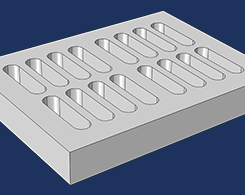
Creating a Model Geometry in COMSOL Multiphysics®
Learn how to create a geometry directly within COMSOL Multiphysics® using geometric primitives and geometry operations. Then, watch an introductory video series to see each step in detail.
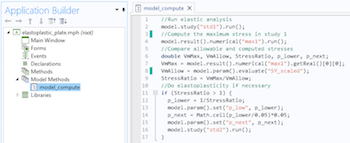
How to Automate Physics Choices and Studies Using Model Methods
The ability to create and use methods in COMSOL Multiphysics® is useful for automating your modeling processes, such as choosing physics and studies.

Why Should I Use Automatic Wall Treatment for My CFD Modeling?
The automatic wall treatment functionality enables you to use low Reynolds number models for a wider range of CFD problems, but there are some factors to consider before implementing the feature.

How to Use Model Methods to Accelerate Your COMSOL® Workflow
Methods aren’t just for enhancing simulation applications built in the Application Builder. In fact, you can create methods to streamline and automate repetitive modeling operations.
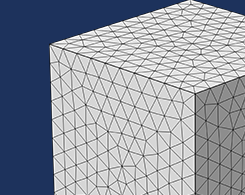
How to Generate Randomized Inhomogeneous Material Data
Did you know there is a way to take randomized material data with specified statistical properties determined by a spectral density distribution and use it to generate and visualize results?
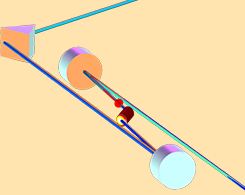
How to Analyze Laser Cavity Stability with Multiphysics Ray Tracing
If you’re looking for an in-depth example of multiphysics ray tracing, then check out this blog post about analyzing and predicting laser cavity stability in the COMSOL® software.

How to Model Heat and Moisture Transport in Porous Media with COMSOL®
Modeling the transport of heat and moisture in porous media, like building envelopes and other construction materials, is a simple process with a predefined Heat and Moisture Transport interface.
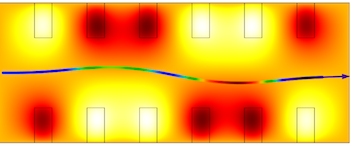
How Does the Choice of Ray-Tracing Algorithm Affect the Solution?
When performing a high-frequency optics simulation, do you use a sequential, nonsequential, or exact ray tracing algorithm? Learn how to choose to make the most of your solution.
